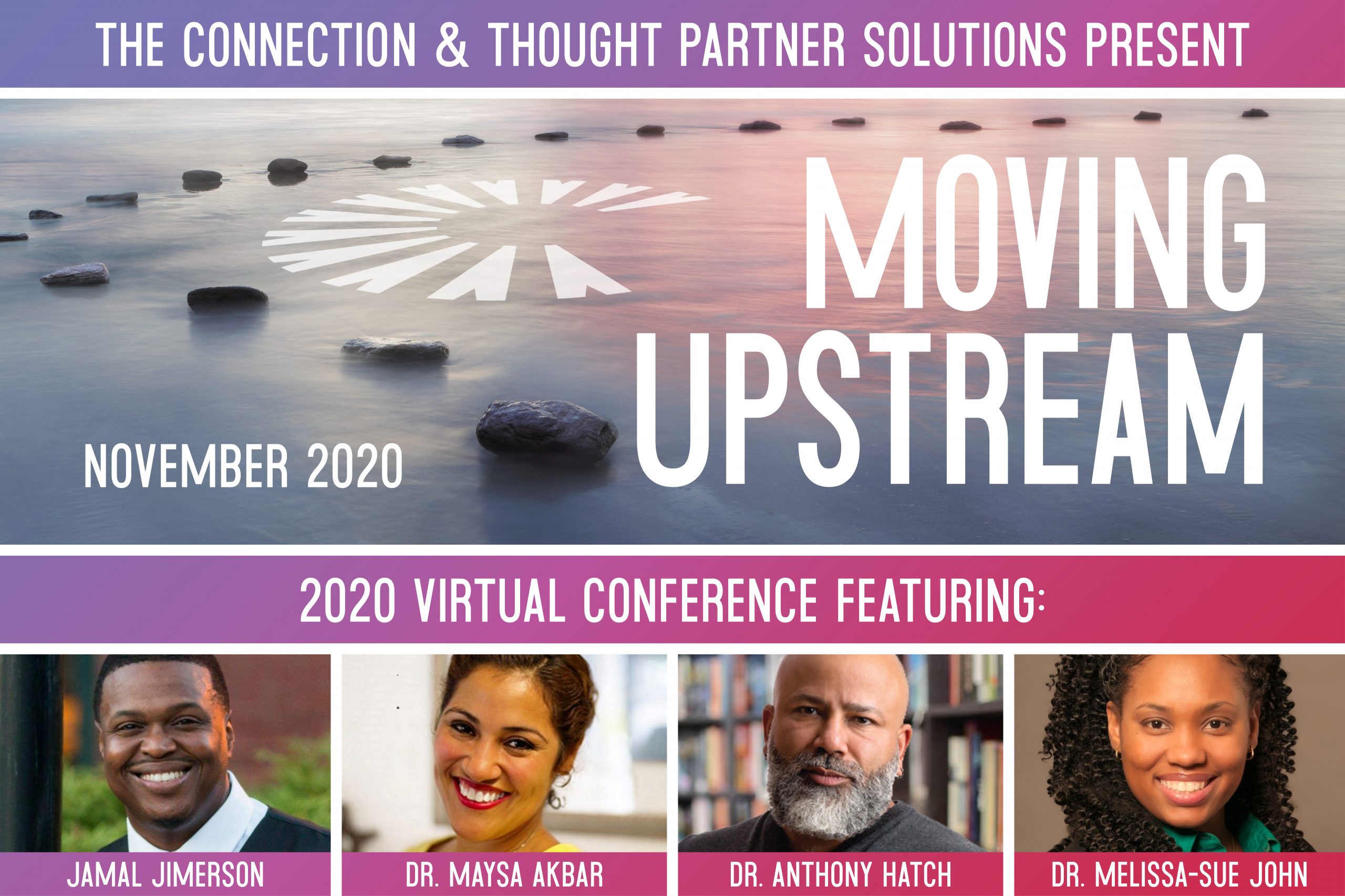The Connection hosts an annual conference, offering excellent professional development opportunities for the human services community. The conference has an industry-related theme and is an immersive day of learning and networking with colleagues. The 2019 topic was Cultivating Resilience and featured internationally renowned Trauma-Informed Care Expert Tonier Caine as the keynote.
The COVID-19 pandemic has forced us to reimagine the 2020 conference, which will be presented virtually. Building on the momentum of our 2019 conference, the 2020 title will be Moving Upstream. Delivered as a four-part lecture series, the conference will focus primarily on the Social Determinants of Health (the way we live, learn, work and play), and more specifically, the role that inequities due to social justice factors play in the SDOH.
In many circumstances, by shifting funding “upstream” toward root causes and prevention, the deeper causal factors behind poor health are addressed. Community-based organizations are uniquely positioned to work with people on the factors that influence health outside of traditional clinical care, such as social and economic factors and physical environment. Moving a family into a stable, safe housing environment free of pests or mold, in a good school district, with the help of a community-based organization, is an example of how future health care concerns can be prevented. Going one step further to provide vocational and educational coaching as part of individualized treatment can impact the long-term wealth and health of a family for generations to come.
When we explore this aspect of community-based care more closely, there are clear connections between health disparities and structural/systemic racism. Both individual racial discrimination (i.e., racial slurs, threats of violence, microaggressions) and systemic racism (i.e., housing, poverty, quality schooling, criminal justice) impact health through psychological stress, access to resources, and even bodily harm. Stress and trauma caused by inadequate access to educational, financial, and employment opportunities can lead to stressful life experiences such as incarceration, unemployment, substance use, chronic health conditions, and mental health conditions.
By shifting funding “upstream,” organizations can systematically and proactively address these challenges with a lens for equity-mindedness and collective impact, before they present as costly long-term health conditions. Changing the conversation to view these types of activities as more effective is a crucial piece of moving upstream and will be explored through innovative breakout sessions and nationally regarded keynote speakers.
Conference Sessions:
Can We Get There From Here?” Sailing Upstream Toward Health Justice
Presenter: Anthony Hatch, PhD, Sociologist and Associate Professor and Chair of Science in Society Program at Wesleyan University
Date: November 10, 2020
Time: 11:00am–1:00pm
Session Description: In this talk, I will offer reflections on my twenty years as a health educator and scholar of health inequalities and lead a discussion about how we sail upstream to confront the social systems and structures that create health inequality. I will review the most recent research on the social and political determinants of health and ask how we marshal this work to support the efforts of community-based health organizations.
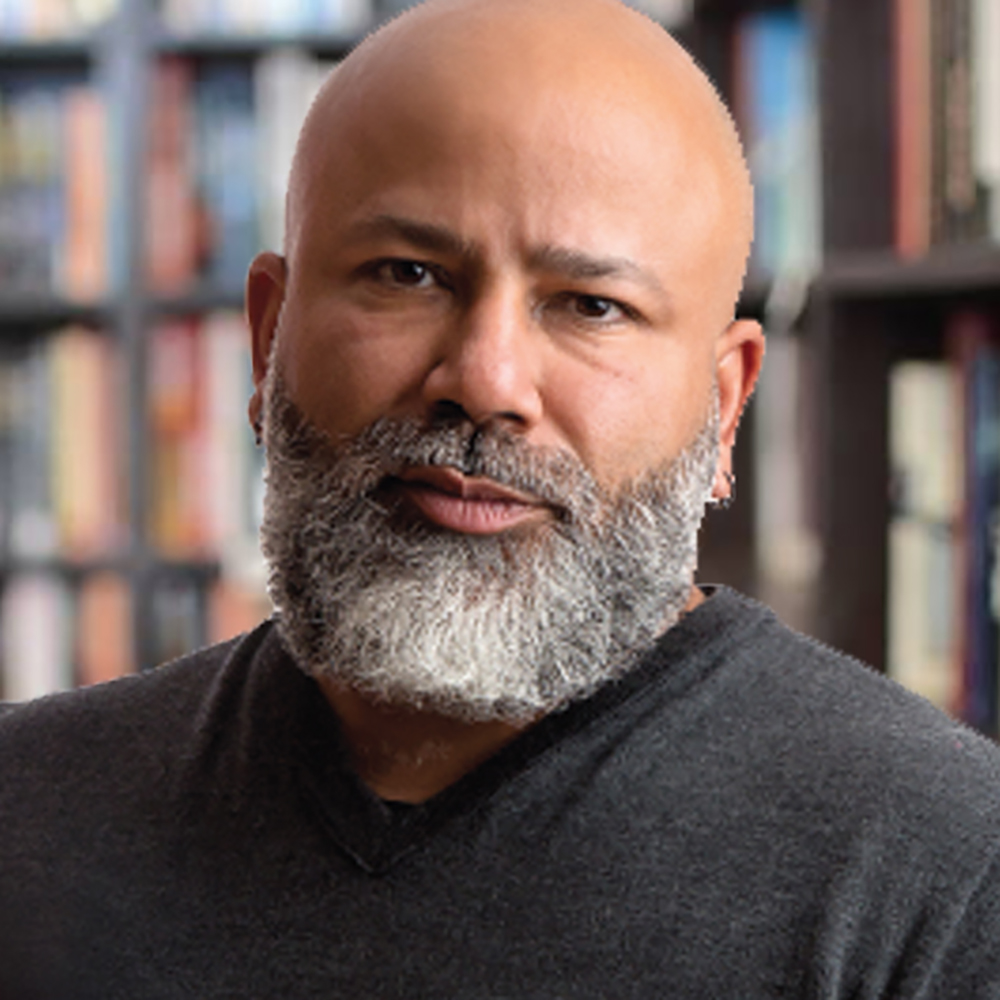
Anthony Ryan Hatch, Ph.D., is a sociologist and Associate Professor and Chair of Science in Society Program at Wesleyan University, where he is affiliated with African American Studies, Environmental Studies, and Sociology. At Wesleyan, he is involved with the Center for Prison Education and the Sustainability and Environmental Justice Pedagogical Initiative.
Dr. Hatch began his career working for community-based public health interventions related to substance use, HIV/AIDS, and mental health at the Rollins School of Public Health at Emory University. He received his AB in philosophy from Dartmouth College and both his M.A. and Ph.D. in sociology from the University of Maryland at College Park, where he held the pre-doctoral Minority Fellowship from the American Sociological Association and the National Institute of Mental Health. From 2009-2015, he was a faculty member in the Department of Sociology at Georgia State University and from 2009-2011 he held a National Institute of Mental Health postdoctoral training fellowship at Morehouse School of Medicine focused on substance use, mental health, and HIV/AIDS in prisons. In 2012, he participated in the Summer Research Institute at The Ohio State University’s Criminal Justice Research Center. He joined the Wesleyan faculty in 2015.
Dr. Hatch is an expert on how medicine and technology impact social inequalities in health. Dr. Hatch is the author of Blood Sugar: Racial Pharmacology and Food Justice in Black America (University of Minnesota Press, 2016) which critiques how biomedical scientists, government researchers, and drug companies use concepts of race and ethnicity to study and treat metabolic syndrome, a biomedical construct that identifies people at high risk of heart disease, stroke, and diabetes. His second book, Silent Cells: The Secret Drugging of Captive America (University of Minnesota Press, 2019), examines how custodial institutions like prisons, nursing homes, and the US military use psychotropic drugs to manage captive populations in the United States.
In 2017, Dr. Hatch held a Faculty Fellowship at the Center for the Humanities at Wesleyan that led to the creation of Black Phoenix Rising: Death and Resurrection of Black Lives (http://blackphoenixrising.research.wesleyan.edu/), a multimedia, digital scholarship, and cultural arts project that explores the aesthetic contours of antiracist scholarship and resistance. During the 2019-20 academic year, he was a Faculty Fellow in the College of the Environment Think Tank at Wesleyan, studying the re. He lives with his family in West Hartford, Connecticut.
Navigating Racial Trauma and Racial Anxiety
Date: November 12, 220
Time: 11:00am–1:00pm
Presenters: Jamal Jimerson, MA, Founder of Minority Inclusion Project and Managing Partner for Thought Partner Solutions, and Melissa-Sue John, Ph.D., Social Psychologist, Author, Racial Equity Coach, Trainer
Session Description: Racism is a chronic stressor in the lives of black, Indigenous, and people of color (BIPOC). Racism is an endemic in the American way of life and in light of COVID-19, has been deemed a pandemic, an undeniable public health issue. Experts describe that not only does racism operate in the disparaging effects of health care such as poor treatment of pregnant black mothers, but it also produces disparate health consequences such as increased risk of heart disease, hypertension, stroke, and diabetes. Racism also presents mental health disparities, namely anxiety, depression, and substance abuse. In this talk, the presenters will discuss the impact of racial trauma and racial anxiety. Racial anxiety occurs for both Whites and BIPOC members. People of color experience concern that they will be the subject of stereotypes, discrimination, and/or hostility, and White people are concerned that they will be assumed to be racist. Racial trauma is similar to post-traumatic stress disorder but is unique in that it involved repeated exposure to individual and collective injuries such as watching viral videos of police brutality against African Americans or learning about the sterilization of Latinas detained by ICE. This presentation will also include tips for coping with racial trauma and how to be a better ally and improve intergroup relations.
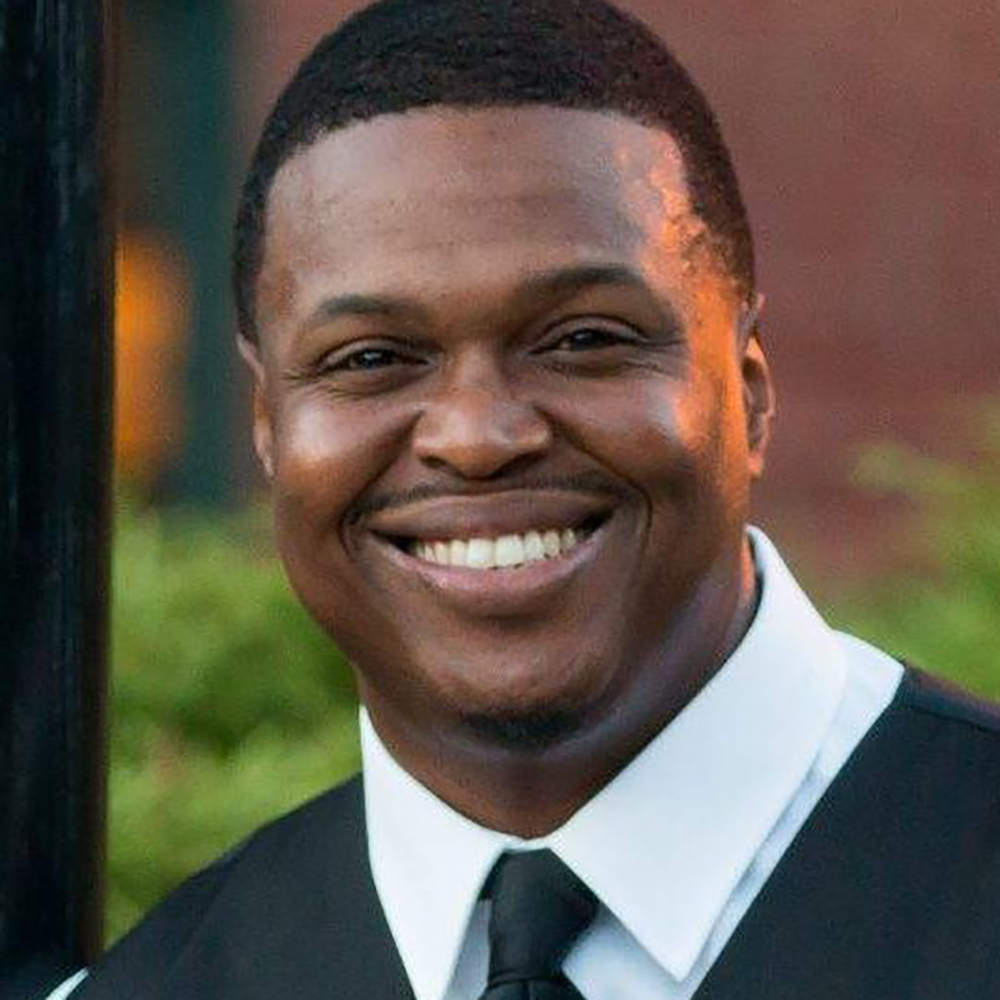
Jamal Jimerson, MA is the Founder of Minority Inclusion Project and Managing Partner for Thought Partner Solutions where he leads statewide efforts to close the nonprofit racial leadership gap as a trainer, race-equity coach, facilitator, and consultant. Jamal has almost 20 years of public service experience and has given several invited presentations and keynotes on race-equity, diversity, and inclusive leadership for regional and national conferences, colleges, and universities.
Known for being “real” in his facilitation, presentation, and interpersonal communication style, Jamal leverages his personal background, professional experiences, and academic credentials as a resource in race-equity and inclusion based strategic planning, program development, and philanthropy. He holds a B.A. in Communications (University of Bridgeport), an M.A. in Business Communications (Trident University), and an M.S. in Human Services (Capella University).
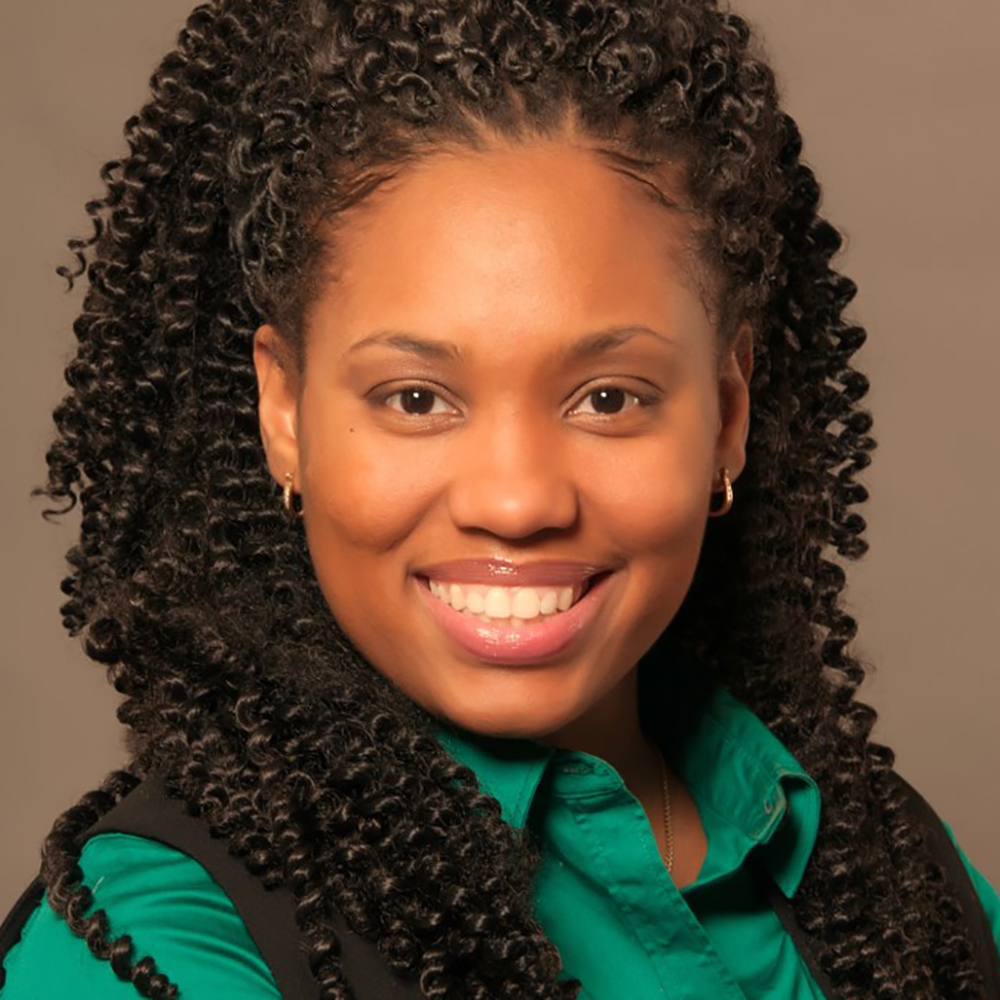
Melissa-Sue John, Ph.D. is a social psychologist, university lecturer, grant writer, research associate, racial equity coach, trainer and facilitator, mentor, author, and children’s book publisher. She was born in Jamaica, W.I and after completion of high school, she immigrated to the U.S. where she earned a Bachelor of Arts degree from Hunter College, CUNY and continued her studies at the University of Connecticut, Storrs where she earned master’s and doctoral degrees in Psychology. She enjoys lecturing, researching, writing, and presenting. These professional roles led her to write and publish diverse children’s literature where they focus on STEAM education, diversity, inclusion, and universal design. Having written about diversity in research publications and children’s book, as well as participating in activism, and becoming a member of her town district and a commission at the community level, she aspired to do more for her community. She enrolled in at Thought Partner Solutions training and connected instantaneously to the models, the work, and the method. She thought her skills as a Social Psychologist would be an ideal union with the style of the facilitators. When she is not trying to change the world, she is chasing waterfalls and hiking trails with her husband and two daughters.
Urban Trauma and Healthcare
Date: November 17, 2020
Time: 2:00pm–3:00pm
Presenter: Maysa Akbar, PhD, Clinical Psychologist and Assistant Clinical Professor at Yale University, School of Medicine, and CEO and founder of Integrated Wellness Group
Session Description: Dr. Maysa Akbar will explore how Urban Trauma and Healthcare are intertwined and ultimately impact our Social Determinants of Health. As her studies have focused on Urban Trauma, Dr. Akbar will address how racially motivated toxic stress disproportionately affects individuals living in predominantly urban settings. This conversation will highlight ways in which thinkers and leaders can shift the conversations and allow us to “move upstream” as a collective.
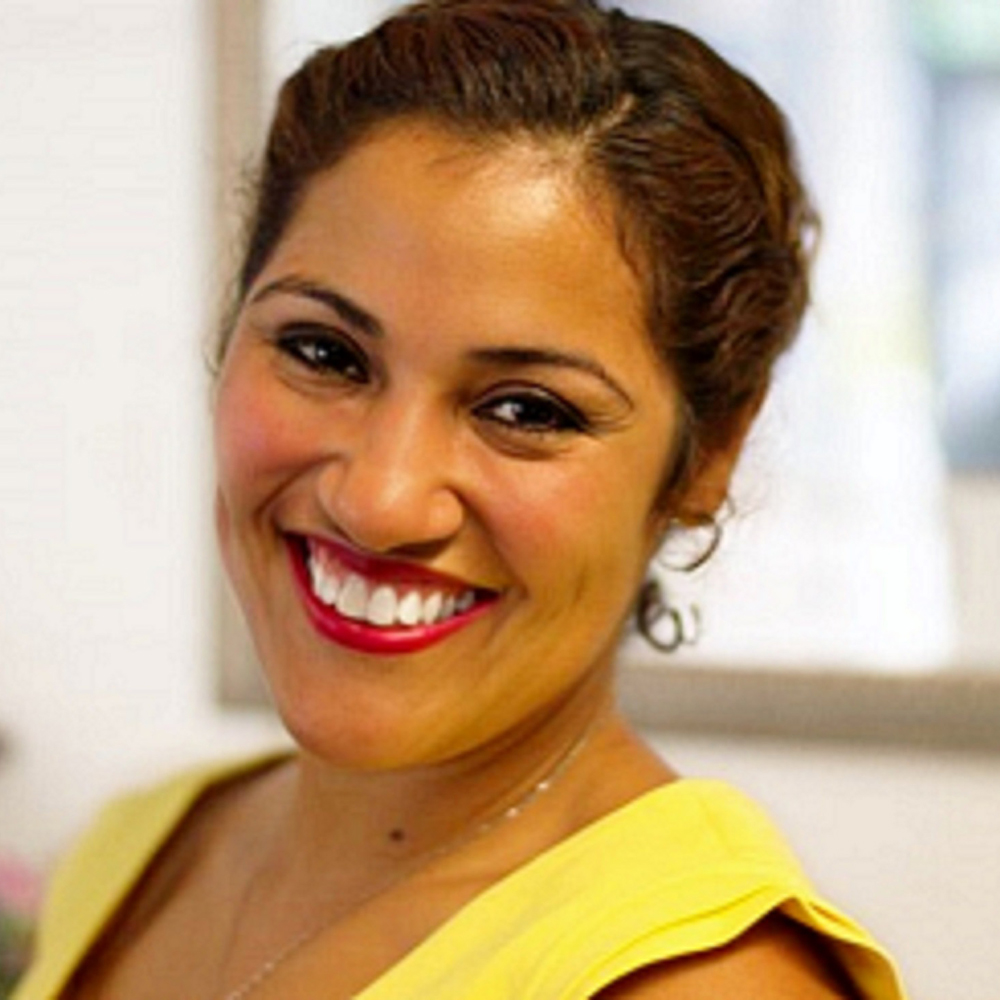
Dr. Maysa Akbar is a groundbreaking psychologist, best-selling author, and healer. Dr. Akbar is a thought leader and expert in racial trauma, allyship, diversity, equity, and inclusion. She is an engaging and dynamic speaker who is sought by corporations, philanthropies, nonprofit organizations, urban school districts, and social service agencies in their efforts to promote antiracism and advance racial equity. She brings insight, courage, and passion to her conversations with communities of color and white communities alike. In her first book, Urban Trauma, A Legacy of Racism, Dr. Akbar introduces the Urban Trauma™ framework, unpacking how people of color live in a state of crisis due to oppressive societal systems, resulting in feelings of anger, rage, and hopelessness. In her second book, Beyond Ally: The Pursuit of Racial Justice, with wisdom and compassion, Dr. Akbar advances her racial justice work through the creation of the Ally Identity Model, which details the stages of allyship in dismantling systemic oppression. Dr. Akbar is a board-certified clinical psychologist and is an Assistant Clinical Professor at Yale University, School of Medicine. She is the CEO and founder of Integrated Wellness Group, a psychotherapy practice specializing in treating race-based trauma since 2008. Dr. Akbar represents the American Psychological Association at the United Nations where she informs psychology practice within the international community. Dr. Akbar lives in New Haven with her husband and two children. In her spare time, she engages in meditation and yoga practices focused on healing and liberation from race-based trauma.
Awareness to Action
Date: November 19, 2020
Time: 2:30pm–4:00pm
Presenters: Jamal Jimerson, MA, Founder of Minority Inclusion Project and Managing Partner for Thought Partner Solutions, and Melissa-Sue John, PhD., Social Psychologist, Author, Racial Equity Coach, Trainer
Dr. Natalie Dove received her doctoral degree in Social Psychology from Purdue University and her master’s degree from University of Connecticut. Currently, she is an associate professor at Eastern Michigan University. She was an assistant professor in psychology at Illinois Wesleyan University and completed her postdoctoral training at the Center for Health / HIV Intervention and Prevention (CHIP) at the University of Connecticut. Her research focuses on factors influencing sexual and other health-related risk reduction, gender-related stereotypes and images in the media, the effects of race and SES on Covid-19 related attitudes, behaviors, cognition and responses to governmental mandates and calls to action. She has evaluated the effectiveness of media literacy programs, such as Dove’s Campaign “For Real Beauty”, which are designed to increase self-esteem among men and women. Dr. Dove is skilled in meta-analysis and has completed several meta-analyses that evaluated the efficacy of HIV-reduction programs at reducing sexual frequency outcomes in general, and also for African Americans and those in African nations. She has published several articles, book chapters, and has presented often at both regional and national conferences.

Jamal Jimerson, MA is the Founder of Minority Inclusion Project and Managing Partner for Thought Partner Solutions where he leads statewide efforts to close the nonprofit racial leadership gap as a trainer, race-equity coach, facilitator, and consultant. Jamal has almost 20 years of public service experience and has given several invited presentations and keynotes on race-equity, diversity, and inclusive leadership for regional and national conferences, colleges, and universities.
Known for being “real” in his facilitation, presentation, and interpersonal communication style, Jamal leverages his personal background, professional experiences, and academic credentials as a resource in race-equity and inclusion based strategic planning, program development, and philanthropy. He holds a B.A. in Communications (University of Bridgeport), an M.A. in Business Communications (Trident University), and an M.S. in Human Services (Capella University).

Melissa-Sue John, Ph.D. is a social psychologist, university lecturer, grant writer, research associate, racial equity coach, trainer and facilitator, mentor, author, and children’s book publisher. She was born in Jamaica, W.I and after completion of high school, she immigrated to the U.S. where she earned a Bachelor of Arts degree from Hunter College, CUNY and continued her studies at the University of Connecticut, Storrs where she earned master’s and doctoral degrees in Psychology. She enjoys lecturing, researching, writing, and presenting. These professional roles led her to write and publish diverse children’s literature where they focus on STEAM education, diversity, inclusion, and universal design. Having written about diversity in research publications and children’s book, as well as participating in activism, and becoming a member of her town district and a commission at the community level, she aspired to do more for her community. She enrolled in at Thought Partner Solutions training and connected instantaneously to the models, the work, and the method. She thought her skills as a Social Psychologist would be an ideal union with the style of the facilitators. When she is not trying to change the world, she is chasing waterfalls and hiking trails with her husband and two daughters.
Dr. Raja Staggers-Hakim is a social researcher and skilled facilitator in the areas of health inequities, social inequality, and race & racism. Staggers received a doctorate in medical sociology and race, class, and gender studies from Howard University and a Master of Public Health (MPH) in Community Health Education from New York University. Dr. Staggers-Hakim has nearly twenty-years of experience in nonprofit leadership with community health centers and non-profit organizations. Staggers has worked in higher education for over ten years and has presented her research nationally. Dr. Staggers-Hakim has facilitated national conversations on discrimination and the impact on health and led trainings on diversity, cultural competency, advocacy, and equity. Dr. Staggers-Hakim is the Founder and Executive Director of CHEER Institute, a 501c3 non-profit organization dedicated to eliminating health inequities through health education and promotion; community health initiatives; engagement; and participatory research. Dr. Staggers is also owner of CHEER Consulting Group which specializes in DEI training and technical assistance through organizational assessment, strategic planning, program development, program evaluation, and board development.
